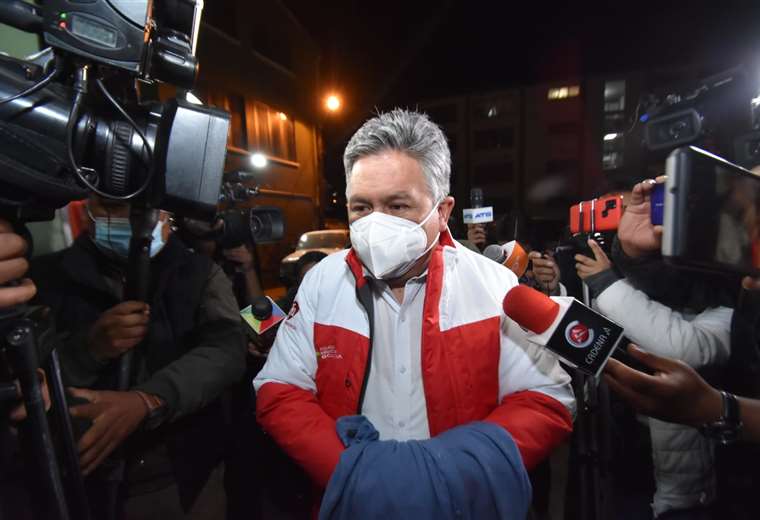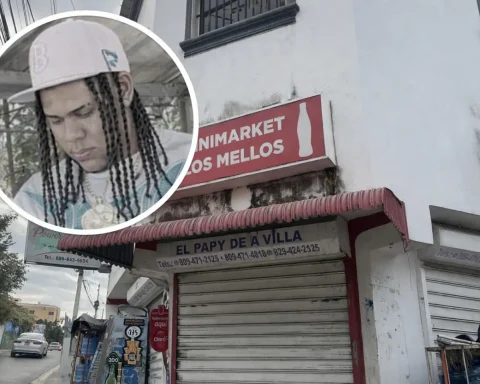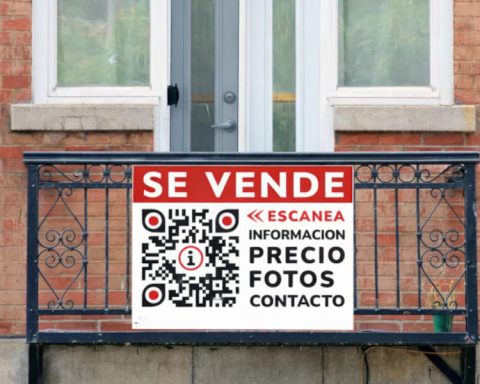In 2019, Vaddy Monsalve (29) was doing her internship to graduate as a social worker, when she saw the need to create a school for caregivers. She first made a diagnosis. In her visits to the families that are accompanied by the Family Support Program (PAFAM) of the Hogar de Cristo in Curicó, she visualized the physical and psychological overload of those who are in charge of children, parents or a relative.
Most are women. Without academic training or knowledge on how to care for an adult with cognitive, intellectual and/or mental disabilities. What they know is from their experience. And most of them are alone, without support networks, an issue that the pandemic aggravated, when not even the PAFAM monitors could get close to the sanitary guards.
Concerned about not leaving families alone and maintaining contact, even from a distance, the idea of making information capsules was born. Vaddy was instructed in the field of mental disability and, from there, he created two-minute videos, which he sent on WhatsApp. They were about what disability is, pathologies such as schizophrenia, mood disorders, among other topics.
“Mental health is a very broad term. They can associate it with disability, but it is also linked to their emotions as caregivers. What for one can be seen as everyday: interacting with others, for them it is not, because they isolate themselves from the environment. And that is a key factor that the foundation works on: strengthening support networks,” says Vaddy, emphasizing that the pandemic further deepened the loneliness of caregivers.
From creating capsules, they moved on to the idea of giving workshops to the five caregivers who were involved in this project. That’s where the School for Caregivers was born. Classes started via Zoom in 2021 and then went face-to-face. Nothing was left to chance: they had a mesh, objectives, goals and a guideline. “The idea is that this group continues, beyond the time they will be in the foundation. That they generate ties and make their role as caregivers visible. And when they are unified and strengthened, the legal personality can be removed, so that they can apply for social projects and benefits”, says Vaddy with enthusiasm, who, from being a student in practice, today is a plant worker.
At the end of the seven classes, the five female caregivers were given a certificate. “It is in recognition of the fact that they went through these workshops, for their participation, commitment and for everything they did on their part to manage their time and participate in this initiative,” says the social worker today.
And such was the success that another monitor exported the project to families from Teno and other sectors of the Maule region. Currently, the workshops continue to be taught and Vaddy, together with the PAFAM team, are designing and expanding the School’s curriculum.
“They focus a lot on making their work as caregivers invisible. It is not a task recognized at the national level or by public policies. They feel invisible to the system. For this reason, having formed the School for Caregivers, where they can share experiences, give their opinion on some subject, get over it, despite the fact that some of them cannot read or write, is very valuable”, explains Vaddy.
“I’m so exhausted”
One of the first caregivers to believe in Vaddy and her School for Caregivers was Rosario Contreras (54), mother and caregiver of Inés (16), who suffers from the sotos syndrome, severe autism and epilepsy. “She has a special personality. There are times when she is very affectionate and other times when she is violent, she hits whoever is nearby, ”she describes. She is her youngest daughter and lives alone with her.
According to Rosario, when Inés was given the second dose against whooping cough, autism developed. She says that it is a controversial subject, because the doctors do not want to admit it. She “she was vaccinated at 10 in the morning, and by noon she was already hospitalized. The changes were horrible. From being a girl who laughed, she became an absent girl. She wasn’t looking at me. It was drastic”, she remembers about that period, when her daughter was four years old. After various studies, it was concluded that she was intoxicated with mercury. And as if that wasn’t enough, at the same time, she started with strong epilepsies.
“Right now I’m in a difficult situation and I feel so exhausted. Inés’ father decided to leave us. He settles for paying alimony and that’s it. And I have always said that children with disabilities should have another type of pension. I can’t work with Inés. You would see the amount of things that she invented. I yew, I sell detergent, plants. I’m looking for one way or another. I have a vehicle that I sometimes Uber with. When I do Uber, I see sticks that people have thrown in the trash and I pick them up because they are used for the wood stove. With that I cook and I save gas. It is a constant saving situations. Every day is to solve things”, she says, very grateful for the foundation.

Rosario and her daughter Ines.
Regarding the School for Caregivers, she says: “We are beginning to see that we are a sector that has been forgotten. Nobody teaches us how to be caregivers. With the Vaddy we have taken subjects that we learned along the way, without knowing. There has to be some way for one to learn and prepare beforehand. A mental illness is so complex that you must prepare yourself emotionally to be able to care for, in this case, my daughter. The School is the materialization of many things that were going around, that apparently did not make sense. Or that one did them out of inertia.”
“I am alert every day”
María Rojas (38) lives in Teno with her husband and two children. The oldest is Noel (18), he has west syndrome, refractory epilepsy, psychomotor and mental retardation. According to her account, due to his illness, his son seems to be a year and a half old. “My work with Noel is 24/7, every day. He walks, but he always has to be with an adult. He doesn’t know about dangers, he doesn’t know how to ask for things, he doesn’t speak even though he is not mute. It is a very tiring task, but we are still here”, she says.
The doctors told her that her son’s condition is not genetic, it is chance. “Of 400 thousand children, one is born and it touched you. You won the lottery,” the doctor pointed out. “I was a young mother and without knowing about this disease, it was new to me, I had never heard of it. I had to research, read”, he says.
What most complicates her role is the little time she can dedicate to her husband and her daughter, who is under 8 years old. “Why do you spend so much time with him and not with me? my daughter asks me. It’s those things that are happening and you have to organize little by little. Noel has seizures every day. He can walk just fine and he falls. You have to be alert every day, all day. And that is exhausting. There are good days… and there are bad days,” she explains.

María takes care of her son Noel.
For the School for Caregivers, she has nothing but praise. “It’s very good because we are a group of moms who went through the same thing. We support each other and it does us good emotionally and we try to help each other. The group is not very big but we are very united. It is the first time that I am in a group of caregivers. There are always groups aimed at people with disabilities, not for those we care for. And for me that is very rewarding. We are invisible. We are here because we have to be, but nobody recognizes that. This is my job, there is no break. It can’t be done. Sometimes we go out with my husband for a few laps, when a niece takes care of him, but going away for a weekend, not even thinking about it”.
The base is love
According to a CEP Chile study As of 2021, the age range of those who care for dependents within the same household is 40 to 60 years old. 76% are women and, according to this research, these caregivers have fewer years of schooling or incomplete higher education.
“Regarding caregivers who do not work, the authors establish that only 12% of type 1 caregivers (every person who assists another person within the household on an unpaid basis) who do not work seek employment and, of those who do not seek employment, almost half do not do so because they have no one to leave a family member with. Having to take care of a family member is a limitation to be employed”, reads the document.
In June this year, the government announced the implementation of the National System of Care (SNC)an initiative that aims to relieve the role of those who care and “support them with training and formal employment, thus improving working conditions for care workers, and promoting local economies from a feminist and economic justice perspective.”
Vaddy reflects: “The caregiver can’t get mad. The disabled person depends on them for all. Her work is based on love. There is that emotional bond that leads them to overcome any adversity. I take a second, breathe and move on. It’s a 24/7 job. Your burden is significant. The key to this initiative is recognition. Take their reality and show them that they do matter. Maybe her son can’t tell him how important she is, but they feel it because no one else can take better care of him than they do. Although there are few people who recognize it, I try to point out how important they are to their children and their families.”


















